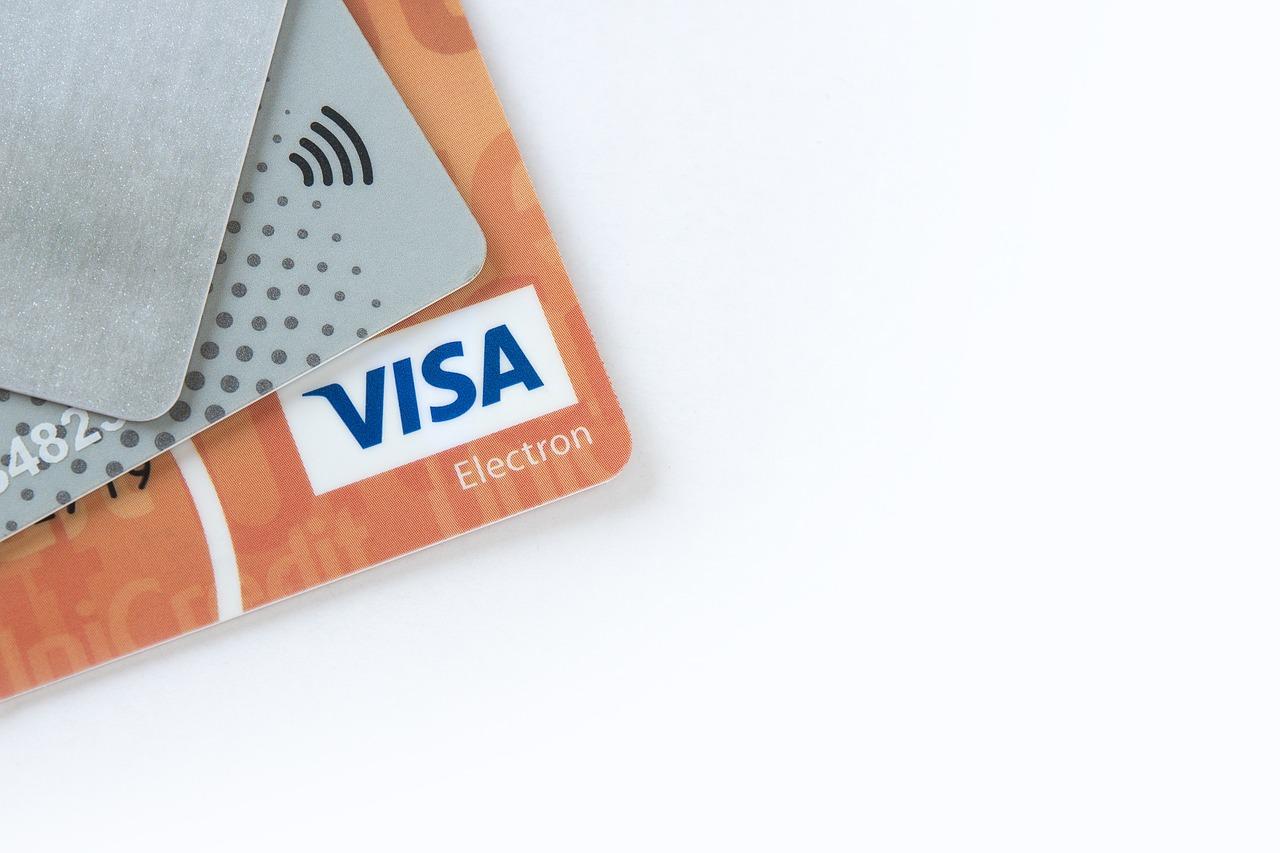Almost three years have passed since the first sanctions and restrictions were imposed on Russian banks and payment systems. Transferring money abroad, as well as paying for goods and services abroad, has gone from a simple routine operation to a real quest. However, the fewer banks work with the traditional SWIFT system, the more alternative systems and methods of money and currency settlement appear. Let's take a look at which payment and remittance methods will still be relevant in 2025, which will no longer be available and what new options have emerged.
Restrictions in 2025
This year, the Bank of Russia extended the restrictions on sending money abroad by 6 months - from 1 October 2024 to 31 March 2025. Visa and Master Card cards issued by Russian banks will not work in Cyprus. They can only be used on the territory of Russia. Unfortunately, Mir cards are also not accepted on the island.

SWIFT transfers
Russians and non-resident individuals from friendly countries will continue to be able to transfer no more than $1 million or the equivalent in other foreign currencies per month to any accounts in foreign banks. The limit for transfers through money transfer systems will also remain - no more than $10,000 per month. Or its equivalent in another currency.
However, due to the introduced restrictions, fewer and fewer banks in Russia are working with SWIFT transfers. For example, as of 2 September 2024, Raiffeisen Bank stopped making individual transfers in foreign currency, according to its customer service. And according to the information of 21 November 2024, BCS Bank recommends its clients to suspend transfers in foreign currency after the introduction of sanctions by the United States. Nevertheless, SWIFT transfers are still available for a number of Russian banks in 2025, but it has become more difficult to work with them. You need to keep a close eye on the latest information and new restrictions.
Gazprombank
Gazprombank still performs SWIFT transfers to foreign accounts. You can make the transaction from an open bank account or by cash deposit using the details. The bank accepts the following currencies;
- Euro
- Tenge
- Chinese Yuan
- Turkish Lira
- Russian Rouble
Commission
At the moment Gazprom-Express name transfer rates are 3% of the amount, minimum - 30 thousand rubles, maximum - 60 thousand rubles.
Terms and conditions
Gazprombank makes transfers only in the currency for which the account is opened:
From a resident to a non-resident (individual) - transfers in currency: up to 1 million USD per month if an account is opened, in the absence of an account - the equivalent of 5 thousand USD per day or 10 thousand USD per month.
From a resident to a non-resident (legal entity) - transfers abroad are allowed only in the form of payment for goods, works, services for personal use, not related to entrepreneurial activity. If the account is not opened, the conditions are the same, but the maximum amount is limited to the equivalent of $5,000 per day.
Card to card - it is currently impossible to transfer funds from card to card abroad, except for cards of Uzbek banks.
UniCredit Bank
Accepts the following currencies:
- US Dollars
- Euros
- Chinese Yuan
- UAE Dirham
- Armenian drams
- Serbian dinars
- Kazakhstani Tenge
- Turkish Lira
- Hong Kong Dollar
Commission
The commission for Internet Bank transfers is 2%, with a minimum of $200 and a maximum of $1,000. If you transfer by other methods (e.g. in a bank branch), the commission increases to 3%.)
Terms and conditions
UniCredit Bank allows its clients to make payments to any country in the world. Even if you have an account in only one freely convertible currency, you can make transfers in any other currency. From 12 November 2024, according to the new conditions, natural persons will be able to make transfers without authorisation:
- - from 10 thousand dollars
- - from 10 thousand euros
- - from 70 thousand yen
Transfers of smaller amounts are carried out by agreement with the bank.
OTP Bank
Executes SWIFT transfers in the following currencies:
- American dollars
- Euros
- Roubles
- Pound Sterling
- Canadian Dollars
- Swiss Francs
- Romanian lei
- Chinese Yuan
- Hungarian Forint
- Kazakhstani Tenge
Commission
When sending from a personal account. 2% of the amount will be deducted for a transaction in euros. The minimum fee is 80 Euros and the maximum fee is 400 Euros. When transferring via the office, the fixed commission for transactions in euros is 4% of the amount. The client will pay from 80 to 500 euros for the fact of sending. For transactions in other currencies the commission is lower - 1-2% depending on the package of services.
Terms and conditions
Through a bank branch - you can send up to 1 million dollars per month. This amount can be transferred only from a foreign currency account. Without opening an account, you can send no more than $10,000 per month.
Online transfers - you can send yuan, tenge or forint from your personal account. It is also possible to send money in euros. Users of the standard service package may transfer no more than 1 million rubles or the equivalent in other units per calendar month. For privileged clients the limit is higher - up to 3 million rubles or its equivalent per month.
Advantages of SWIFT transfers:
- Speed and security of payments.
- High reliability.
- Versatility and convenience - payments and transfers can be made both in person at a bank branch, online and through a mobile application.
Minuses:
- Instability - in the current situation, when more and more Russian banks are under sanctions, there is a risk of new restrictions.
- Limited list of currencies and countries to which transfers can be made.
- Constantly changing transfer fees.

Banks in friendly countries
While opening an account in Cyprus banks, as well as in banks of other EU countries, has become much more complicated in 2025, it makes sense to open an account in one of the banks of friendly countries. This has a number of advantages - such an account is easy to open for Russians, it is not difficult to transfer money to it from Russian accounts, and the card issued by such a bank will be accepted in any country in the world without restrictions. However, even in the legislation of friendly countries there are changes and stricter rules for Russians.
Bank of Kazakhstan multi-currency card
Widely known for its convenience, Kazakhstan's multi-currency card became less accessible to Russians in 2025. As of 19 January, the Kazakh government imposed restrictions, reducing the validity period for Russian customers' cards to 1 year and making it a requirement to obtain a Kazakh TIN to open an account.
Kyrgyz bank cards
The most popular and easiest to issue in 2025 are cards from Kyrgyz banks. In particular, Mbank allows you to open an account in euros and dollars. Another popular card is the Bakai Bank card in Kyrgyzstan. It can be easily loaded from Russian accounts at banks such as Sberbank, VTB and Tinkoff. Bakai Bank also has a system of instant card-to-card (VISA) transfers around the world, the same function is available with the card issued by Mbank. Mbank still offers fast online transfers to over 160 countries via Tunes, which they connected in the autumn of 2024.
Advantages:
- Ease of opening an account
- Easy to top up - you can transfer money from Russian accounts to a card via an online app.
- Cards work in any country without restrictions.
- Easier communication with the bank - many banks have Russian-language customer support.
Disadvantages:
- There is a risk of changes in legislation in friendly countries and possible introduction of new restrictions for Russians.

Bank card processing services
If there is no time or opportunity to open an account in person at a nearby foreign bank, you can use online bank card services. These services offer remote opening of Visa/MasterCard cards in CIS banks and sometimes even in non-CIS countries. The whole process is done remotely, most services deliver the card across Russia and anywhere in the world within a few days. Customer support is available. The most popular services are:
Advantages:
- Fast processing and privacy.
- No need to be present.
- You get a real bank card that can be used not only to make payments abroad, but also to withdraw cash.
- Card delivery anywhere in Russia and the world.
- Customer service.
Disdvantages:
- Limited choice of countries and banks (most services offer card issuance in banks of CIS countries).
- Relatively high cost of services for opening and maintaining the card.

Virtual cards
Virtual cards allow you to make fast, commission-free money transfers from Russia and vice versa. These cards can be easily opened online and loaded remotely. It is a simple and convenient option available on various platforms such as
Advantages:
- Payment security and privacy.
- Quick and easy to get a virtual card.
- Can be used for international transactions.
- Anonymity - no passport needed to open a card.
Disadvantages:
- Only suitable for virtual payments.
- Virtual cards are more expensive to use than traditional bank cards.
- Opening and managing the card is mainly only available on the website, not on the mobile application.
- Card recharging is mainly available in cryptocurrency.

Payment through intermediaries
Customers transfer funds to an intermediary who handles the payment process for the selected service. This simplifies the payment process and eliminates the need to work with cryptocurrency wallets or register with complex payment systems. All the customer has to do is transfer the money to the verified intermediary and receive the desired service. These services typically charge a commission of 15% to 30% and guarantee security and full refunds in the event of a failed transaction. Some of these intermediary services include
Advantages:
- Ease of use.
- No need to have a foreign bank account or e-wallet.
Disadvantages:
- Relatively high fees.

Cryptocurrency
Cryptocurrencies are becoming increasingly popular in Cyprus. According to the latest data, 26% of Cypriots already own a cryptocurrency. Of these, 70% use it for investments and around 8% use it for payments. Cryptocurrencies on the island are regulated by the Cyprus Securities and Exchange Commission (CySEC). ICOs, mining, holding and transferring cryptocurrencies, as well as exchanging them for fiat money, are not currently banned here. However, all investment firms dealing with cryptocurrencies must obtain authorisation from CySEC.
This year, Cyprus will join the new pan-European rules for the regulation of digital assets, which will come into force on 1 January 2025. Stablecoins such as Bitcoin, Etherium and USTD are popular on the island. The most trusted and widely used crypto exchanges in Cyprus are Binance and Coinbase. It is very common to use cryptocurrencies for large transactions, such as buying property or paying for education.
Advantages:
- There is virtually no risk of funds being blocked. The decentralised nature of cryptocurrency means there is no single regulator. Using cryptocurrency allows you to bypass most restrictions imposed by individual states and banks.
- Commission costs are reduced. Blockchain network fees are significantly lower than international bank transfer fees.
- Faster transfers.
- Personal information is much better protected. Accepting payments in cryptocurrency ensures complete confidentiality of the wallet owner's information.
- Payments can be made at any time. Unlike banks, cryptocurrency transactions can be made at any time of the day or night.
- No VAT on cryptocurrency transactions in Cyprus.
Disadvantages:
- High volatility, or rather instability and volatility of the value of the asset, which depends on a variety of factors.
- Lack of regulation and instability of cryptocurrencies in different countries. There is no single legislation that regulates cryptocurrencies. However, new unified rules will come into force in the EU from 2025.

Revolut Online Bank
Revolut Online Bank cards and services have recently become popular in Cyprus. It is a multi-functional financial platform that allows you to open a current account, get a debit card in 25 currencies and trade on the stock exchange without commission. Revolut is accepted in many shops, cafes and restaurants on the island, and you can also use it to pay for some services. At the moment, however, it is not available to all Russians, but only to those with second citizenship or a residence permit from another country.
Advantages:
- Low price - the Revolut card is issued free of charge, you only pay for its delivery.
- Payments can be made in any of 120 currencies or in cryptocurrency.
- Availability of a debit card that allows you to pay for goods and services online, as well as withdraw cash from your account at ATMs.
- No fees - payment is commission-free and at the best exchange rate.
- Convenience - you can manage your Revolut account from the mobile app.
Disadvantages:
- Only available to holders of a second nationality or residence permit from another country.
- If you withdraw cash from an ATM with a Revolut card, the local bank may charge a fee for each transaction.
The bottom line
By 2025, the use of e-wallets, open banking, cryptocurrencies and central bank e-currencies is expected to grow significantly on the island. Traditional payment systems will gradually fade into the background, giving way to new high-tech solutions. Thus, despite
sanctions, you can find one or a combination of convenient ways to transfer money and make financial settlements in Cyprus.
Read also:

